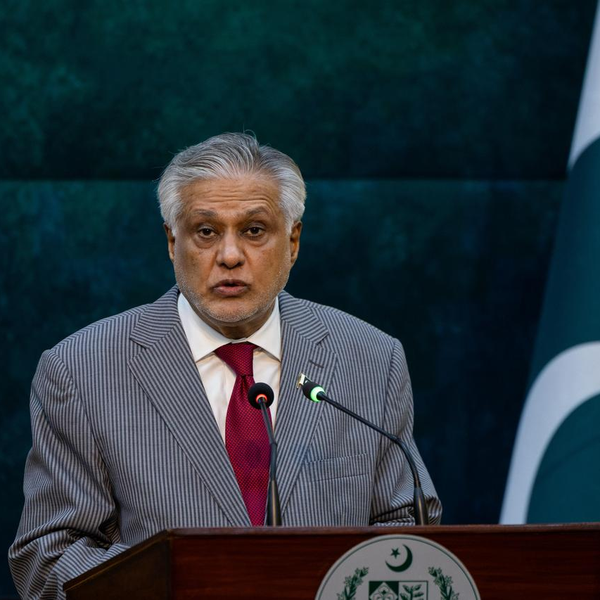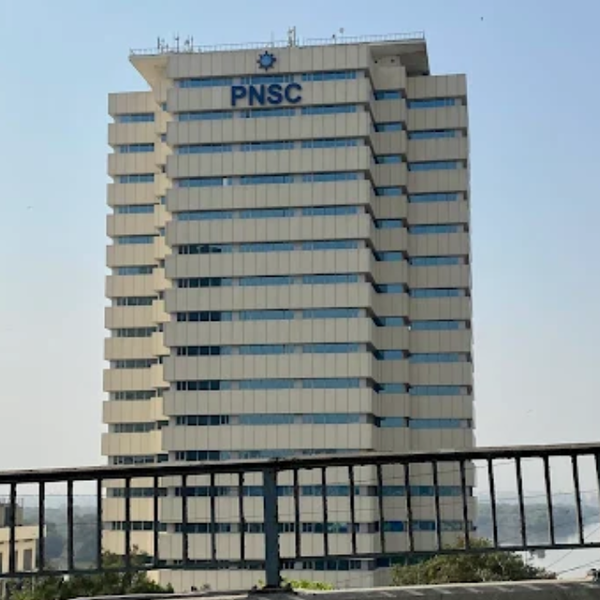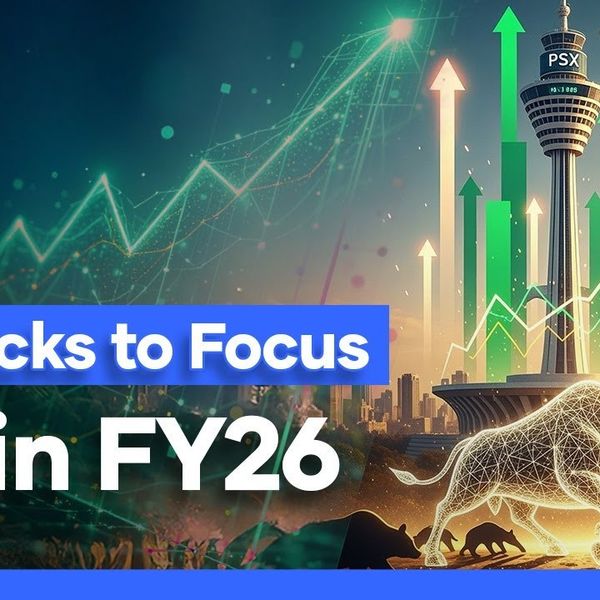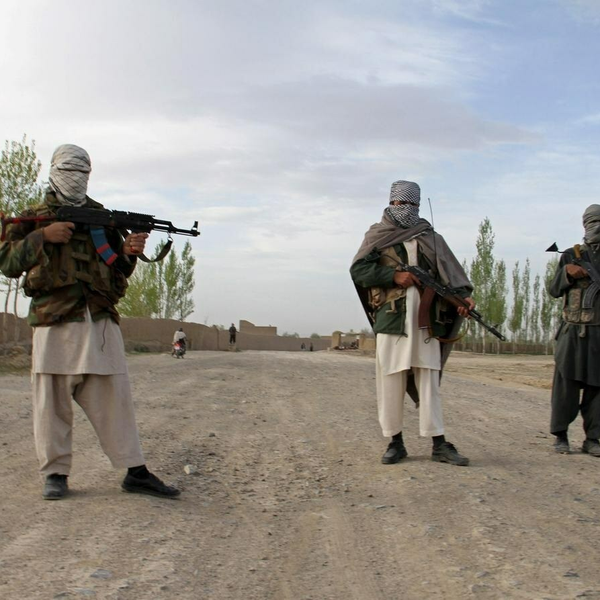Pakistan's NAB: Catching corruption or just playing politics
Corruption watchdog comes under fire for targeting politicians while ignoring major graft cases

Aamir Abbasi
Editor, Islamabad
Aamir; a journalist with 15 years of experience, working in Newspaper, TV and Digital Media. Worked in Field, covered Big Legal Constitutional and Political Events in Pakistan since 2009 with Pakistan’s Top Media Organizations. Graduate of Quaid I Azam University Islamabad.
Pakistan's corruption watchdog, the National Accountability Bureau (NAB), continues to face criticism for alleged political bias. While progress on major corruption cases remains sluggish, the bureau appears to fast-track cases involving political figures.
A striking example of this disparity emerged 10 years ago when NAB submitted a report to the Supreme Court detailing 179 mega corruption cases under investigation. However, investigations into three cases have yet to conclude, and 86 other cases are still pending trial.
In contrast, NAB seems focused on initiating cases against politicians.
Ruling parties -- whether it’s the Pakistan Muslim League-Nawaz (PML-N), the Pakistan People’s Party (PPP), or the Pakistan Tehreek-e-Insaf (PTI) -- take turns targeting opposition party leaders.
During PTI's rule in 2018, corruption charges were brought against PML-N supremo Nawaz Sharif and other leaders, including incumbent Prime Minister Shehbaz Sharif.
Now, in a political role reversal, PTI leaders find themselves under NAB’s scrutiny as PML-N and PPP form the ruling coalition.
Three-time Prime Minister Nawaz Sharif was twice convicted by accountability courts in the Avenfield and Al-Azizia references but was later acquitted by the Islamabad High Court.
Now, PTI leader and former Prime Minister Imran Khan is facing similar challenges. He was convicted in the Toshakhana reference by an accountability court in just 22 days, shortly before last year's general elections, effectively disqualifying him in time for the polls.
Imran Khan is also facing another NAB reference in the Al-Qadir Trust case, involving corruption charges amounting to £190 million.
The trial was completed in a record 10 months, reflecting NAB and the court’s keen interest in reaching an early decision. During the trial, the judge visited Adiala Jail in Rawalpindi—where Imran Khan is imprisoned—twice a week to conduct hearings.
Largest corruption scandal hits pause
Four years ago, NAB identified the Fake Bank Accounts case as Pakistan’s largest corruption scandal, involving more than 100 billion rupees ($360 million).
The case implicated former President Asif Ali Zardari, Sindh Chief Minister Murad Ali Shah, the Omni Group, and several leaders of the PPP, along with government officials from Sindh.
NAB alleged that the multi-layered system of fake bank accounts, operated under the guise of the Omni Group, was used to collect kickbacks from government officials.
The accountability watchdog investigated around 172 individuals, including prominent figures such as Asif Ali Zardari, Bilawal Bhutto-Zardari, and Murad Ali Shah. According to NAB, several suspects entered into plea bargains, leading to recoveries totaling 33.246 billion rupees ($119.69 million).
In 2022, the new government, led by PPP and PML-N, made several amendments to the NAB law, after which all cases involving party leaders of the ruling coalition were dropped.
All investigations in the fake bank accounts case have been halted.
Toshakhana cases face legal snag
In another turn of events following the amendments, similar Toshakhana cases against Nawaz Sharif, President Asif Ali Zardari, and Senate Chairman Yousaf Raza Gillani have stalled.
Toshakhana is an official treasury where gifts from foreign dignitaries or heads of state are stored. These gifts are considered state property and cannot be used or sold for personal gain.
Currently, more than 100 NAB cases are pending in the Accountability Courts of Islamabad, with courts yet to decide the jurisdiction of these cases. Experts predict that over 90 cases are likely to be shifted to other forums due to recent amendments.
According to data shared by NAB, the bureau receives over 300,000 applications annually, most related to fraud in housing schemes and large-scale public scams. However, investigations and prosecutions in cases involving political figures are notably expedited.
179 mega corruption cases
The original list of 179 mega corruption cases, submitted to the Supreme Court in May 2015 and later published on NAB’s website, included 81 inquiries, 52 investigations, and 46 court trials.
According to NAB’s updated report, three cases are still under investigation: the Mir Abdul Ghafoor Lehri assets case, the DHA Valley case, and the Grand Hayat Tower case involving the Capital Development Authority (CDA) and BNP Group.
Meanwhile, 86 references are still under trial in accountability courts, and 90 cases have been disposed of for various reasons.
Critics argue that NAB’s selective efficiency undermines its credibility, raising questions about whether it serves its mandate to curb corruption or merely acts as a tool for political maneuvering.
According to a list of NAB’s mega corruption cases pending in courts, investigations are ongoing against M/s Prudential Securities, the Mines Department of KPK, PESCO, the Modarba Scam, Bank of Punjab fraud, housing societies, the NICL case, Pakistan Steel Mills, the Rental Power Corruption Case, KPT land case, Royal Palm Golf Club, Manzoor Qadir, the Sindh Building Control Authority, and various other cases of cheating the public at large.
The total amount involved in these corruption allegations exceeds PKR 452 billion ($1.63 billion), a figure that was identified 10 years ago.
Twisted origins
Shah Khawar, a former high court judge and NAB's special prosecutor, told Nukta that NAB was created for political engineering and continues to operate in the same manner today. He noted that when NAB caught people in 1999, those who switched political parties were cleared, while the rest of the cases languished.
Adil Aziz Qazi, vice chairman of the Islamabad Bar Council, criticized NAB for never addressing mega corruption cases. While NAB can initiate accountability against anyone, Qazi argues that there is no one to hold the bureau itself accountable.
Justice (retd) Shaiq Usmani, a former Sindh High Court judge, told Nukta that NAB officials act on the government’s whims because they are appointed by the government. “This is why they target political rivals of the ruling party,” he said.
Usmani added that NAB’s practice of declaring anyone a suspect at any time has eroded public trust. “No one cooperates with NAB, which is why it fails to prove cases in court. Proving corruption cases is already a tricky task,” he said.
Senator Kamran Murtaza of the Jamiat Ulema-e-Islam-Fazl (JUI-F), while speaking with Nukta, said that NAB was created by former military ruler Gen Pervez Musharraf to settle political scores.
“It has been used for the same purpose ever since,” he said. Murtaza added that NAB will continue to be a tool for political engineering, with politicians remaining its primary victims.







Comments
See what people are discussing